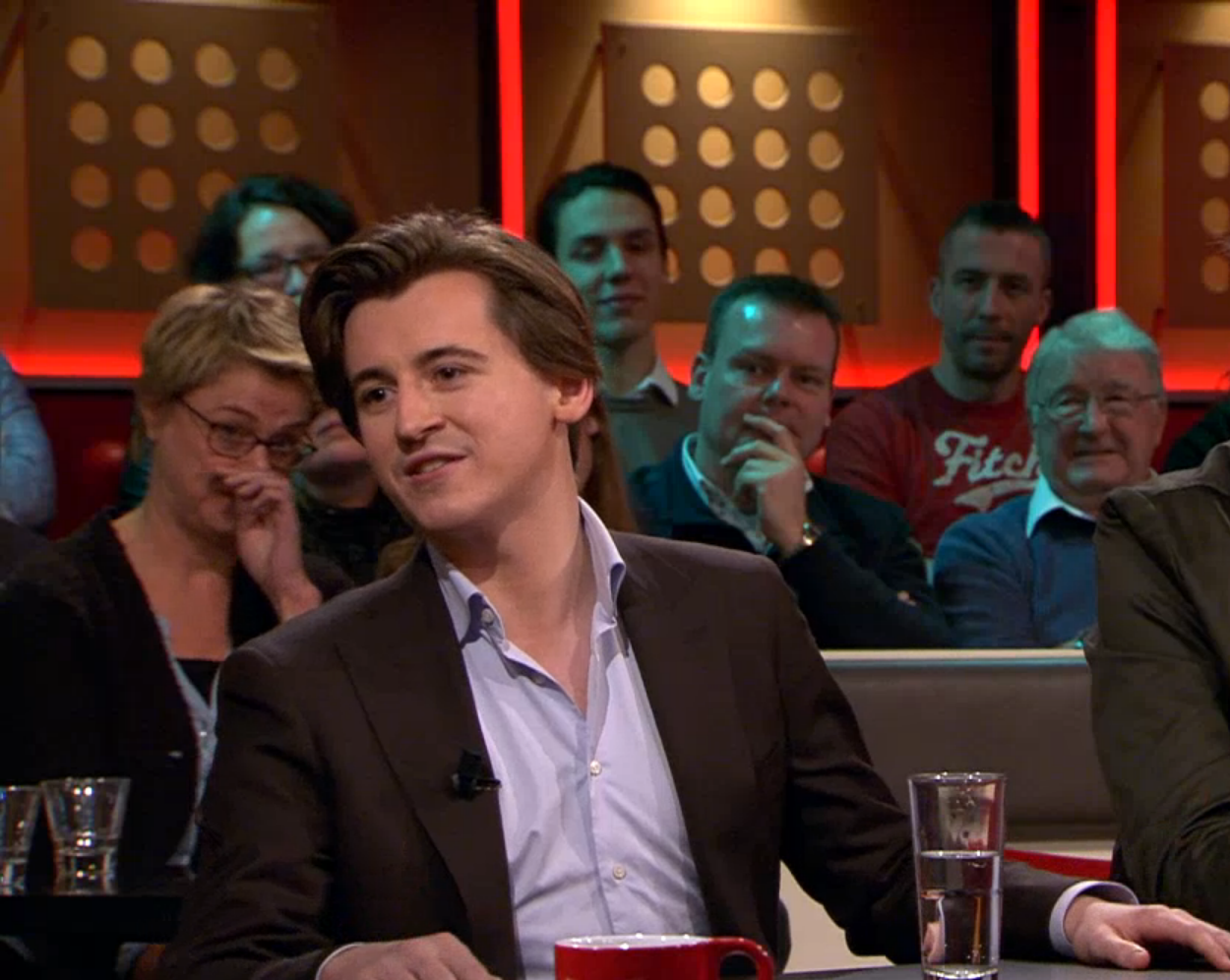Translating Hitler
Aron Brouwer, a doctoral student in history, examines two French translations of Mein Kampf with an eye toward global networks of fascism and anti-fascism.
It was an undergraduate course in digital humanities that first got Aron Brouwer interested in studying Adolf Hitler’s Mein Kampf in translation. A professor taught him how to use algorithms to teach a computer to analyze plain texts, based on the prevalence of topics and themes.
“I thought, ‘Maybe I can compare different translations of a text and see if the same topics arise,’” says Brouwer, a first-year Ph.D. student in history who grew up in the Netherlands and studied the origins of Hitler’s ideology for his bachelor’s thesis. “And if there are differences, it might be interesting to look at those passages and why they are different.”
Mein Kampf is readily available on the internet in many different languages. Focusing on the French translations provided the best avenue for Brouwer to do a thorough comparison, since there are only two French versions produced between 1925 and 1945—by contrast, there are 13 English versions and only one in Dutch.
Last November, Brouwer published a paper examining the political and ideological circumstances surrounding the French translations. The paper, “‘Every Frenchman Must Read This Book’: The Impact of Politics and Ideology on the Production, Translation and Dissemination of Hitler’s Mein Kampf in France, 1933-1939,” appeared in Quaerendo, a journal on book history.
Brouwer says the two 1930s French translations were both produced by right-wing intellectuals with different motivations. “Most studies separate translations of politically sensitive texts into binary categories of either ideologically compliant (fascist) or ideologically resistant (anti-fascist), but these don’t always explain some of the deeper issues,” he explains. “We know that translation can be used as a form of cultural or ideological resistance, but what if this resistance is beholden to a different brand of right-wing nationalism? For instance, although the first French translation, Mon Combat (1934), was broadly supported by left-wing anti-fascist organizations, it was produced, translated, and disseminated by right-wing French nationalists who opposed Adolf Hitler due to their Germanophobic and French nationalist doctrine. Though they may have espoused some of his views, they primarily aimed to enlighten their compatriots about the impending German threat.”
Mon Combat was banned by a Parisian court two months after publication due to a copyright-infringement lawsuit brought by the publishing house of the Nazi Party. However, it continued to circulate in France through the black market.
By contrast, says Brouwer, “The pro-Nazi, pan-fascist translators of Ma Doctrine, published in 1938, were actively pursuing collaboration across borders and explicitly intended to integrate France into a fascist union of European nations.”
This version was heavily abridged for purposes of Nazi propaganda. “The publisher of Ma Doctrine copied the first French translation, but censored it,” Brouwer says. “All translational mistakes present in the first translation are also included in the second. They cut out more than half the text, including Hilter’s anti-French statements, but added two new chapters in which the German Führer urged the fascists in France to rise up against their shared enemy: the Judeo-Bolshevist French government.”
Brouwer’s paper looks at the personal histories of the people involved in the production, translation, and dissemination of Mein Kampf in France, including diplomats, politicians, investors, publishers, editors, and translators. “I’m interested in how those networks worked and how people collaborated,” he says, “both before and during the war.”
The Paris-based publisher that produced Ma Doctrine in 1938, Librairie Arthème Fayard, plans to release a new scholarly French translation of Hitler’s treatise in 2020, raising new debates about France’s relationship with fascism, both historically and current day.
“This is not light reading,” says Brouwer. “Hitler was an eclectic ideologue, as most of his ideas can be traced back to mainstream concepts from the 19th and early 20th centuries. Nazism did not develop in a vacuum. In that sense it’s crucial to try to understand the ideology, its dynamics, and why people across the world were interested in it at the time, because it’s too easy to say that similar worldviews will never become mainstream again.”



